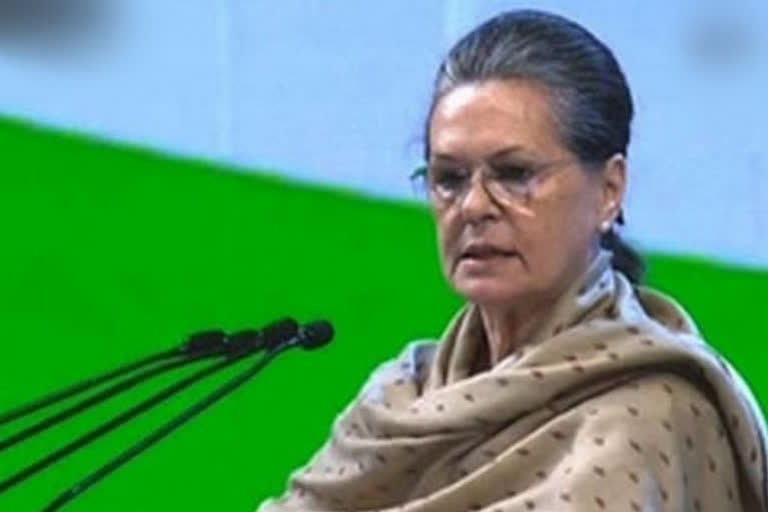New Delhi: The much-hyped brainstorming session, which was to provide solutions to the various challenges being faced by the Congress, including the leadership issue, only ended up endorsing the status quo.
Sonia Gandhi will remain Congress interim chief till such time her son Rahul Gandhi is ready to take over the reins of the party, again, through an electoral process in an All-India Congress Committee session to be held at an unspecified date.
No one would have an issue with that formulation but it was indeed surprising why it took the top guns of the Congress party who are part of the all-powerful Congress Working Committee seven hours to come to that conclusion when the same could have been done through a regular executive order.
Instead, what happened for most part of the day as the CWC met virtually, was something the Congress managers would have never wished.
Much to the glee of Congress' rivals, the CWC came across as a sharply divided body which was struggling to find common ground between two generations of leaders and was still contemplating a plan which would revive it nationally even after six years of losing power to the BJP in 2014.
The CWC ostensibly met to respond to the issues raised by 23 senior party leaders who wrote a letter to Sonia in July drawing her attention over the need to have a fulltime party chief and carry out a thorough organizational reform.
Read: Congress and its troubled history of leadership crises
Both the demands seemed genuine for any opposition party given Sonia, who has health issues, completed one year as interim chief on Aug 10 and the party certainly needs a full time chief to counter the ruling Bharatiya Janata Party.
The CWC deliberations instead became a power game between the veterans, who struggled to explain their position, and the Rahul loyalists.
The alleged remarks of Rahul, questioning the motive of the dissenters and alleging they were playing the BJP's game, played out in the media and painted the grand old party in a poor light.
The party quickly denied the remarks but what saved the day for the Congress was that Rahul himself picked up the phone to do some damage control with veteran Kapil Sibal, who did not attend the CWC meet but was offended by the media's reports attributing the comments to Rahul.
A placated Sibal quickly pulled out a tweet reflecting his displeasure. Soon after, another veteran Ghulam Nabi Azad too tweeted to clarify his offer to quit the party if his links with the BJP could be proved.
Read: Letter Row: Show of family Loyalists Vs Dissenters
The responses from both Azad and Sibal, who had signed the dissent letter to Sonia, came as a silver lining for the Congress managers as it showed that Gandhis still had the charisma to pep up upset colleagues and could act as a glue which can hold the party together.
Sonia's closing remarks saying she may have been hurt by the remarks of party colleagues and there may be differences of opinion with them, but in the end everyone was together, as they signed the resolution drafted in a manner the Gandhis preferred.
During the CWC meet, the dissenters attempted to dispel being branded as back stabbers and pointed out they did not intend to challenge Sonia's authority but only wanted to flag the urgency to address the challenges being faced by the party and the need to carry out reforms at all levels.
As usual, they empowered Sonia to administer any changes in the party, if needed.
For Rahul's supporters, the day was saved with several members demanding that he should be made party chief again. Any murmurs of a non-Gandhi chief perhaps drowned in that chorus.
Read: Kapil Sibal withdraws tweet after Rahul 'personally' clarifies remark
Sonia's old loyalist Ahmed Patel urged Rahul to replace her. That change of guard has been left for a later date but is expected to play out in a familiar fashion when Rahul became Congress chief through a process of internal elections in which he was the sole contestant.
Rahul took over as Congress President in December 2017 but resigned after the 2019 national election results in May.
The dust over leadership issue appears to have settled down for now but it would be difficult for the Congress to neglect the concerns expressed by 23 "dissenters" in good faith.
And therein lies the challenge because the party described the latest leadership crisis as another propaganda against the Gandhis who were speaking truth to power and issued a sort of gag order asking party leaders not to raise internal issues in public.



